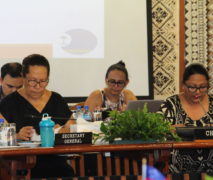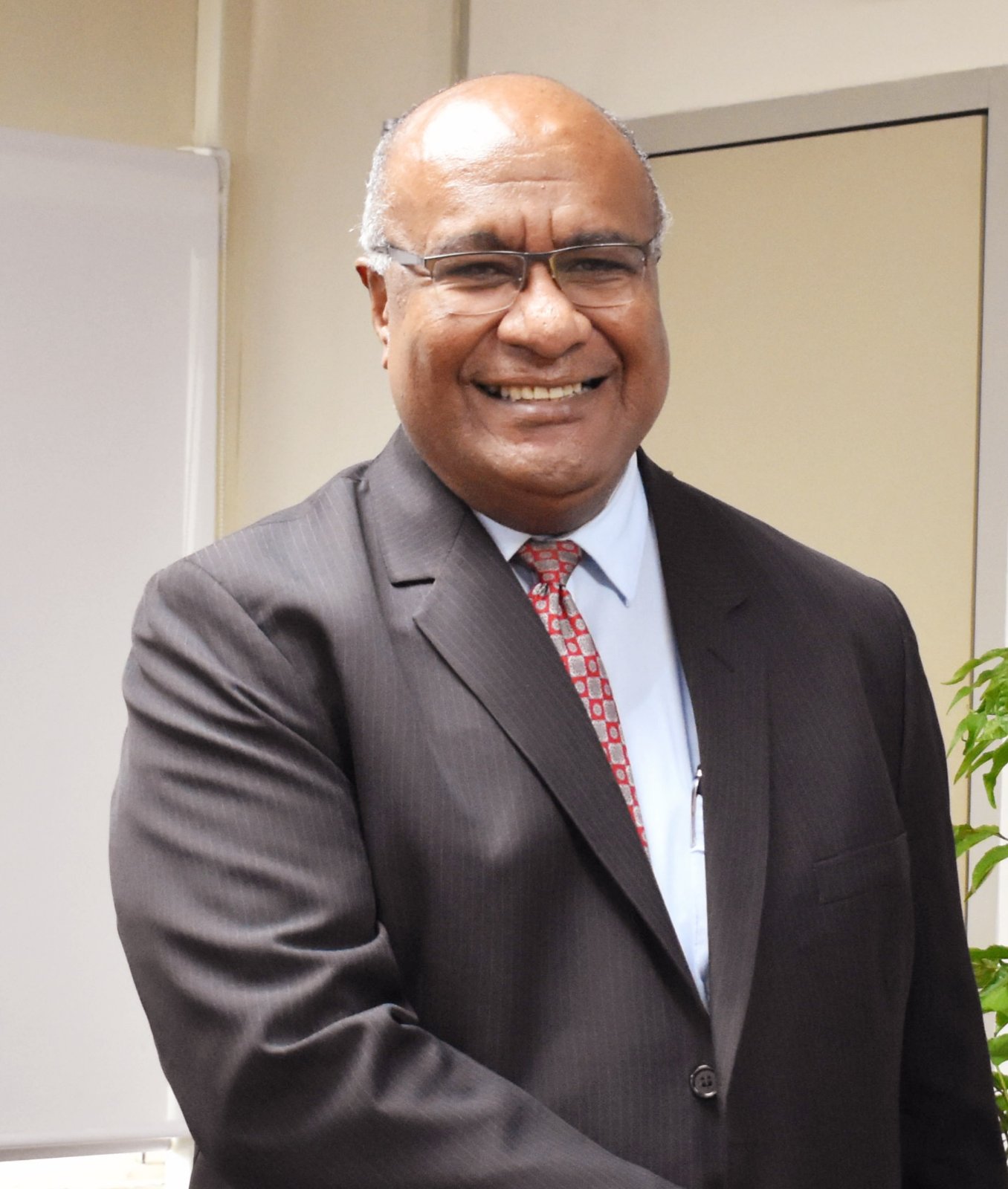Your Excellency, President of Nauru;
Your Excellency, Deputy Prime Minister of Cook Islands;
Your Excellency, Deputy Prime Minister of Tuvalu;
Honourable Ministers;
Excellencies and Senior PACP Officials;
Secretary General;
Heads of CROP fraternity;
Ladies and Gentlemen,
Bula Vinaka and a very good afternoon to you all.
On behalf of the Fijian Government it is my pleasure to welcome you all to Fiji. I trust that you will find time to enjoy our great Fijian hospitality, despite your tight schedules.
At the outset, I wish to acknowledge the Secretariat for their coordination and collaboration with the Fijian Government, to ensure that all necessary arrangements were made accordingly.
Excellencies and Honourable Ministers,
The theme for the 2020 Forum Trade Ministers’ Meeting is “Pacific Trading Nations: from Surviving to Thriving” – a theme that makes us think of the past, where we are today and indeed where we will be in the future.
Although globalisation and trade present new opportunities, the region is struggling to compete on a global scale.
This is because the region has been for too long just “surviving” the various challenges in the wake of global trade uncertainties, global economic downturn, climate change, socio-economic and geopolitical tension; and most importantly the issue of distance and poor connectivity of regions.
In order to fully exploit the economic opportunities provided by international trade, we need to enter in the realm of thriving to build a more prosperous future.
This theme also echoes the Forum Leaders’ aspiration for the Pacific region as “a region of peace, harmony, security, social inclusion, and prosperity, so that all Pacific people can lead free, healthy, and productive lives.”
As administrators of regional trade policies, we all know that trade is important and will contribute to Pacific economies’ transition from surviving to sustainably thriving — thus delivering on our Leaders’ vision.
Excellencies and Honourable Ministers,
We last met in 2014, during the Comprehensive Economic Partnership Agreement negotiations, with our European Union partners. Looking back, I can confidently say that much has changed since our last engagement. I wish to highlight a few fundamental changes.
Since 2015, the Pacific ACP region has had a cyclone every year, and other disasters including droughts and floods during the 2017 El Niño period.
The effects of climate change are negatively impacting our economies, and private sector, including Micro, Small and Medium enterprises. In essence, all communities are under threat. Climate change is no longer a future threat, it is a present reality.
Although our economies have survived the destructions from past cyclones, we need to build resilient trading infrastructure that will enable quick business recovery after any natural disaster.
Excellencies and Honourable Ministers,
In terms of trade integration, a number of regional trade agreements have been concluded, including the PACER Plus and Melanesian Free Trade Agreement, new accessions to the Interim-Economic Partnership Agreement (I-EPA), and an additional PICTA Party, Kiribati, announcing its readiness to trade.
However, intra-regional trade has not increased and we are yet to realise and fully benefit from our trade policies. Effective and timely implementation of the existing trade agreements is much slower than required.
In addition, the current trends on trade agreements, including individual accessions to the Interim EPA, is leading into sub-regionalism, creating multiple pockets of trading blocs, instead of integrating PACP States as a whole. Now that the Comprehensive EPA’s 3-year suspension period has lapsed, the onus is on us to ensure that trade agreements with external partners strengthen PACP regionalism and take development-oriented approach.
Excellencies and Honourable Ministers,
The EU has released a blacklist of tax havens operating outside the EU, and issues penalties to those countries appearing on it.
We have had enough of being yellow carded, red carded, called an unsavoury tax jurisdiction.
From the beginning, the EU list aimed to look only at countries outside the EU. This step strongly harms the credibility of the process, as EU member states are some of the most powerful tax havens in the world, enabling some of the biggest corporations in the world to pay minimal tax.
This is not a behaviour we accept from so-called partners. What we expect is, credibility of the process, mutual respect and genuine partnership in order to address key challenges facing humanity in the 21st Century.
Excellencies and Honourable Ministers,
The global trading environment is unstable and is increasingly called into question. I am mindful of the unprecedented impasse faced by the Multilateral Trading System (MTS), and the contest between popularism and liberalism. The primary victim of the current situation is the credibility of the World Trade Organization (WTO), and related established rules-based multilateral trading system.
The main concern for us, the Pacific ACP States, including the non-WTO Members, is the implications of the lack of progress on Fisheries Subsidies negotiations, to deliver on Sustainable Development Goals 14.6.
We should not lose sight that the Fisheries Subsidies negotiations may likely be expecting an outcome at the 12th WTO Ministerial Conference in June 2020.
Therefore, the PACP must continue to advocate strongly and collectively engage with like-minded countries to secure our common position, and where needed, build coalitions to ensure that our interests are not compromised.
Excellencies and Honourable Minister,
The recent Brexit is a game changer in terms of our trade relations with the European Union (EU), as a whole. Despite minimal PACP exports to the EU, the United Kingdom (UK) is a key export destination market for most PACPS. For example, in 2017 alone, of $198.8 million Fijian exports to the EU, $104.8 million (53%) was destined for the UK. In 2014, 35% of Papua New Guinea’s exports to EU, was destined for the UK. Other key PACP exporters to the UK are Tuvalu, Samoa, and Vanuatu.
In addition to this, the negotiation of the successor to the Cotonou Agreement, which expires at the end of this month (February 2020), commenced in September 2018. Very little tangible progress has been made to date which is why transitional provisions will be put in place to allow the extension of the Cotonou Agreement.
Despite being the most advanced with the regional protocol, compared to the other regions, majority of the text, especially trade-related, in the draft Agreement is bracketed. We need to ensure that there is mutual accountability and partnership of equals. We must not lose sight of the fact that the successor Agreement will govern ACP-EU political, economic and social relations for the next 20 years.
Excellencies and Honourable Ministers,
Despite challenges linked to changing climate, frayed international markets and threats to the multilateral trading system, let us tap into our cultural knowledge and Pacific solidarity to design trade pathways for Pacific Trading Nations to transition from Surviving to Thriving.
With these words, I now call upon the Secretary General to deliver her introductory remarks.
Vinaka Vakalevu. Thank you.



